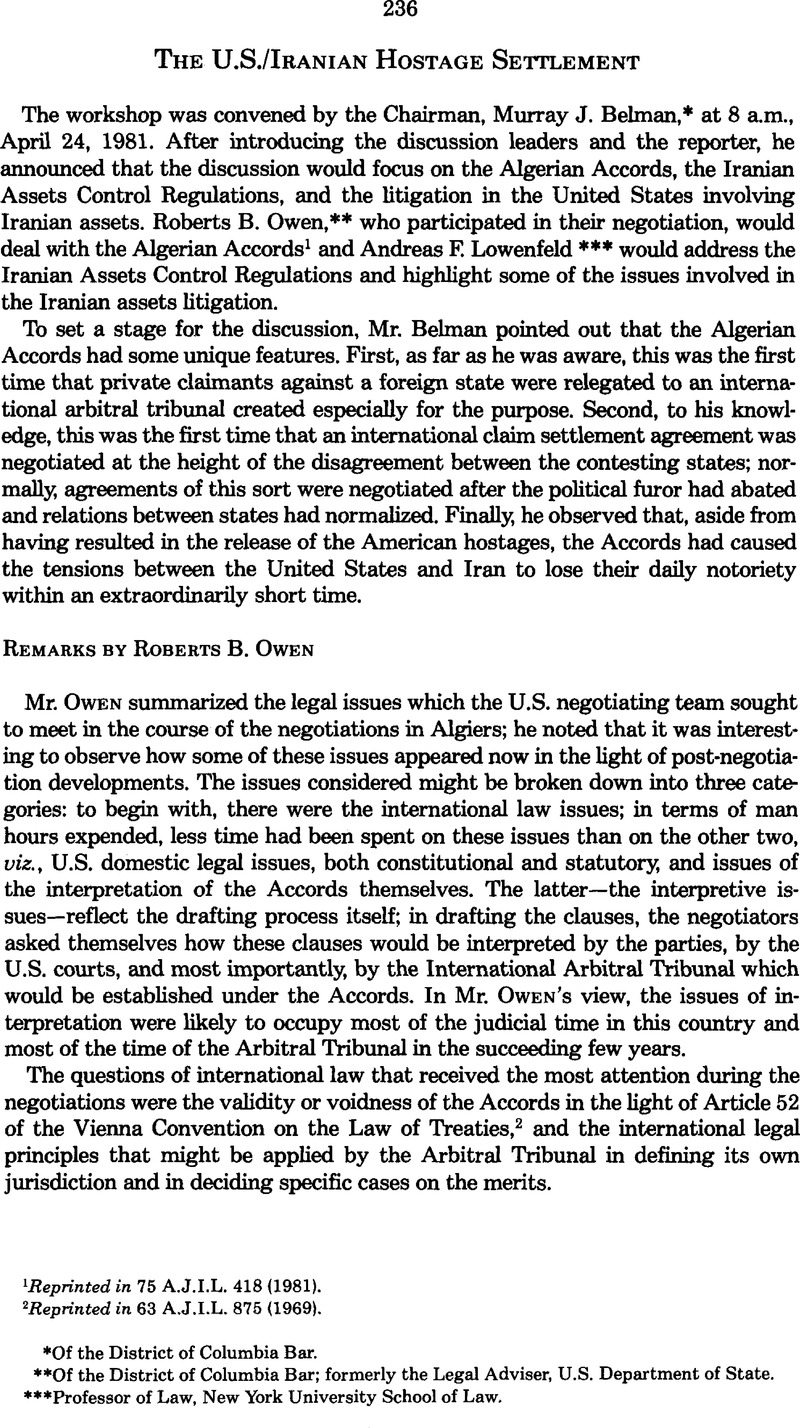No CrossRef data available.
Published online by Cambridge University Press: 28 February 2017

1 Reprinted in 75 A.J.I.L. 418 (1981).
2 Reprinted in 63 A.J.I.L. 875 (1969).
* Of the District of Columbia Bar.
** Of the District of Columbia Bar; formerly the Legal Adviser, U.S. Department of State.
*** Professor of Law, New York University School of Law.
3 Executive Order 12294, February 24, 1981, 48 Fed. Reg. 14111, reprintedin 20 I.L.M. 412 (1981).
4 Art. 5 provides as follows: The Tribunal shall decide all cases on the basis of respect for law, applying such choice of law rules and principles of commercial and international law as the Tribunal determines to be applicable, taken into account relevant usages of the trade, contract provisions and changed circumstances.
5 50 U.S.C. 1701, et seq.
6 E.D.S. v. Social Security Organization of the Government of Iran, N.D. Tex., No. CA3-79-0218- F, February 12, 1981, held that the President lacked the power to order a release of the frozen assets to Iran. A contrary result, upholding the President's power, was reached in Charles T. Main Co., Inc. v. United States, et al., D. Mass., No. 81-315-C, March 17, 1981, and in Unidyne Corp. v. Government of Iran, E.D.Va., No. 80-1029-A, March 30, 1981.
7 New England Merchants National Bank v. Iran Power Generation and Transmission Co., et al., 2d Cir., Nos. 80-6254 through 80-6349, April 9, 1981.